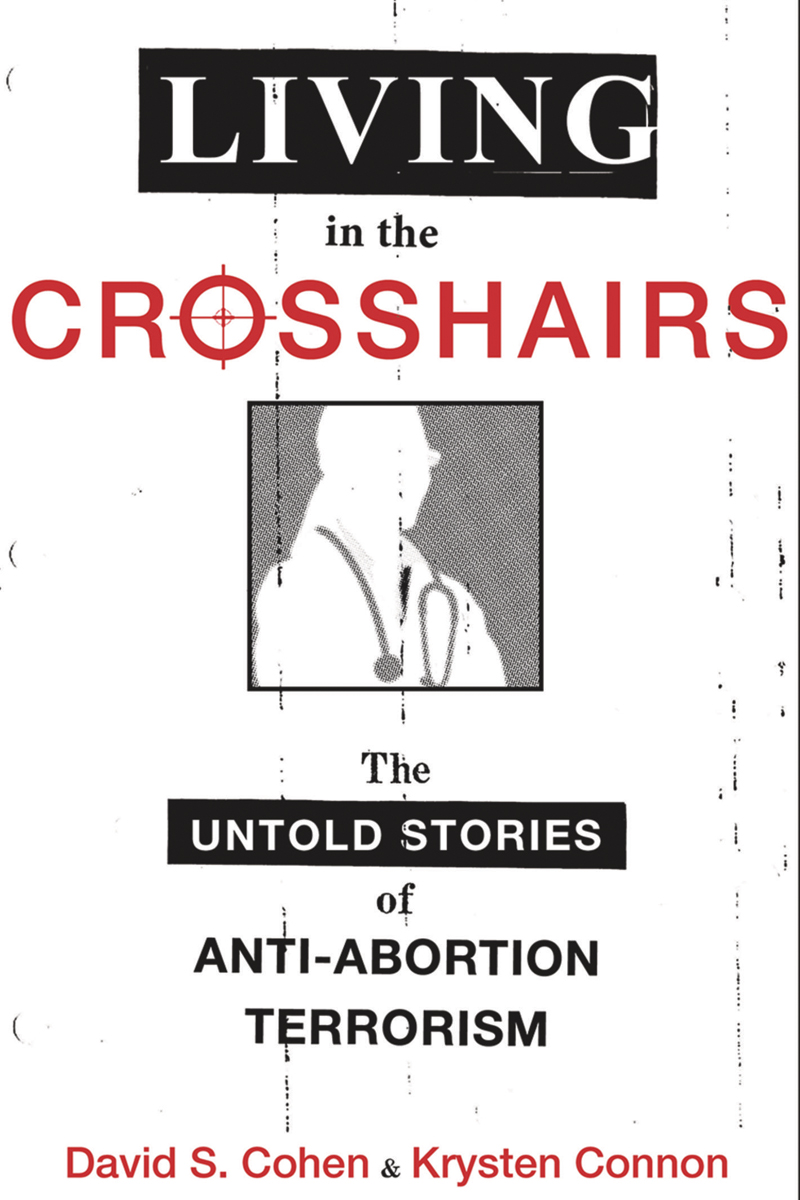
“They call you by name. They know your kids’ names. They know your mom and dad’s names. They know where you go to church.” Kristina Romero (pseudonym used because of threat of harassment) has worked in the field of reproductive healthcare in her politically conservative West South Central state for more than three decades. She has been the target of local anti-abortion protestors ever since the clinic started offering abortions in the late 1990s.
Kristina is one of many victims of anti-abortion terrorism—the harassment and violence faced by those associated with abortion care. According to a Feminist Majority Foundation report last year, personal targeting of abortion providers is rising. The 2014 National Clinic Violence Survey, which tallied the responses of 242 abortion providers from around the country, found that 51.9% of clinics had faced threats and targeted intimidation, up from 26.6% of clinics in 2010.
Kristina has been accosted entering and leaving the clinic. She has also received cards in the mail that describe what type of car she drives, and where she drives it. Perhaps the riskiest part of her job is when she drives the doctor who performs the abortions to and from the clinic. Because of past violence against abortion providers, the doctor drives to another public location to meet Kristina, and then she drives the doctor to the clinic in her own car. For extra security, they vary the locations where they meet. This system is not foolproof, and Kristina says she understands the risks. “There’s always that moment when your heart starts beating a little harder.”
Kristina knows that she has been followed home at least once. “I left to pick up the doctor, and I got to the corner of my house, and there’s a big picture of the doctor with a bulls eye on him, and every corner that I turned was another picture,” Kristina said. “That was probably one of the creepiest days. The pictures were all up the main street I travel on, all the way back to my house.”
The signs on Kristina’s route—large “Wanted” signs with the doctor’s name and picture—were similar to those that had appeared before the murders of several other doctors who performed abortions around the country. It was clear to Kristina that they were targeted at her, too. “It was for me to be scared,” she said. “It was for me.”
This targeted harassment has taken a toll on Kristina. When she drives home from work, she consciously tries to take different routes so that protesters cannot follow her and learn her routine. She installed a security system in her house. She even obtained a bulletproof vest.
“It’s stressful. You get sick more. It gets into your head, it gets into your heart. It gets to be really hard to take.”
Kristina is concerned not only for her own safety but for her children’s safety as well. She moved her son from public school to a private school where the administrators were aware of her profession. “They knew not to let him go with just anybody and that if somebody came to pick him up that wasn’t me, they would call.” Still, Kristina’s children were affected. “They would get scared. They would get upset at times when they’d hear or see things.”
Kristina’s clinic started providing abortions not long after Dr. Barnett Slepian, one of a few doctors performing abortions in Buffalo, New York, was murdered in his kitchen by a sniper in 1998. Though Dr. Slepian’s murder happened far away from Kristina, she said she thinks about it every day. “I cannot sit down at my kitchen table without thinking of Dr. Slepian’s murder because we have a big backyard and I don’t have any coverings on my windows. It goes through my head on a regular basis that there could be somebody out there with a rifle.”
When Dr. George Tiller, who performed abortions late in pregnancy, was murdered in Kansas in 2009, Kristina also had a hard time dealing with it. “We had a memorial for George in one of the cities nearby. I went to the funeral in Wichita, and I think it’s hard to think that could happen to you. That was tough.”
Despite the harassment, Kristina continues to work in this field. “I never thought I would be doing this type of work, but it’s been the most rewarding thing I’ve ever dreamed of doing. It hasn’t always been easy, but you always get something back from clients and from women and their stories.”
Kristina insists that she won’t back down because she is confident that she is doing the right thing. “If I quit, maybe there isn’t somebody else wanting to do this job. I’m also stubborn. I’m a little pigheaded. I don’t want them to win. I think what I’m doing is right. I think what we’re doing is right. I think a choice is right.”
Adapted from Living in the Crosshairs: The Untold Stories of Anti-Abortion Terrorism by David S. Cohen, a law professor at Drexel University, and Krysten Connon and published by Oxford University Press.
More Must-Reads from TIME
- Cybersecurity Experts Are Sounding the Alarm on DOGE
- Meet the 2025 Women of the Year
- The Harsh Truth About Disability Inclusion
- Why Do More Young Adults Have Cancer?
- Colman Domingo Leads With Radical Love
- How to Get Better at Doing Things Alone
- Michelle Zauner Stares Down the Darkness
Contact us at letters@time.com